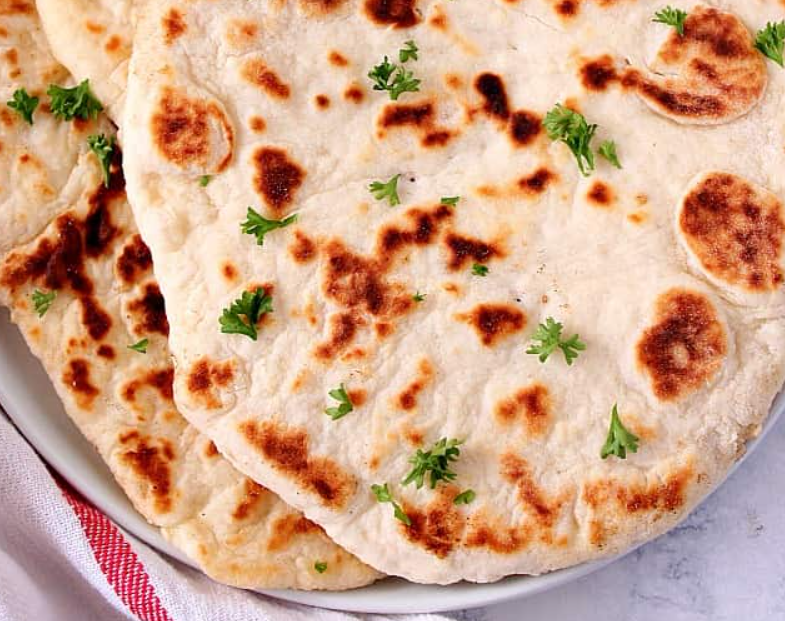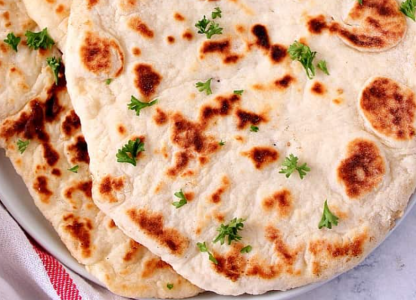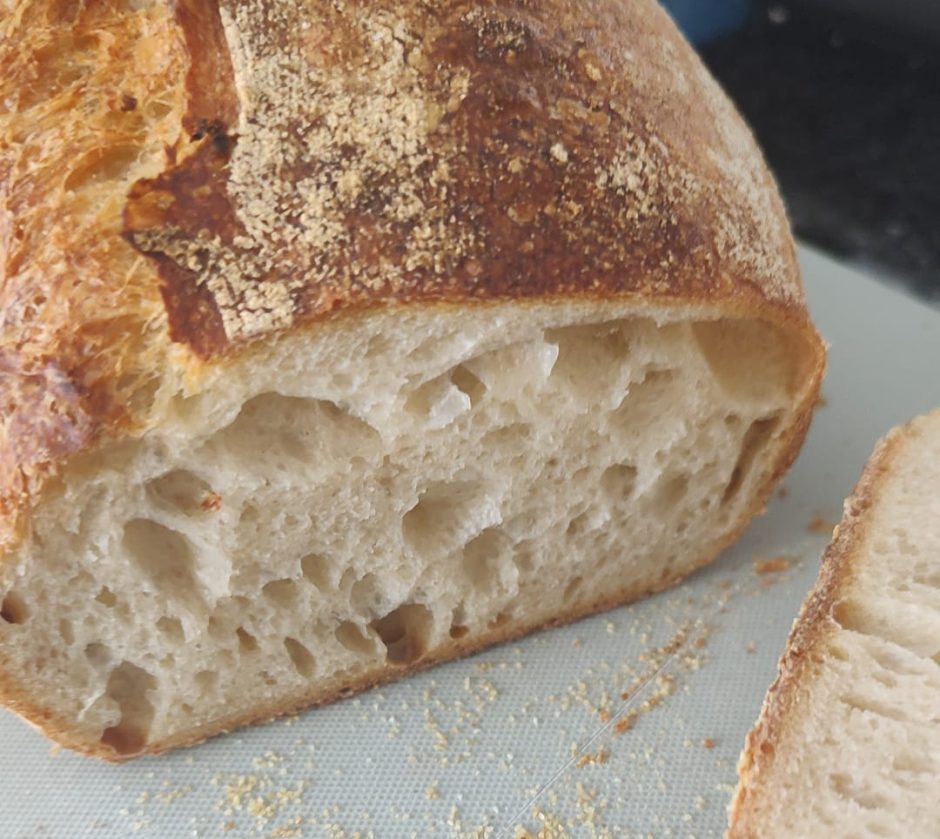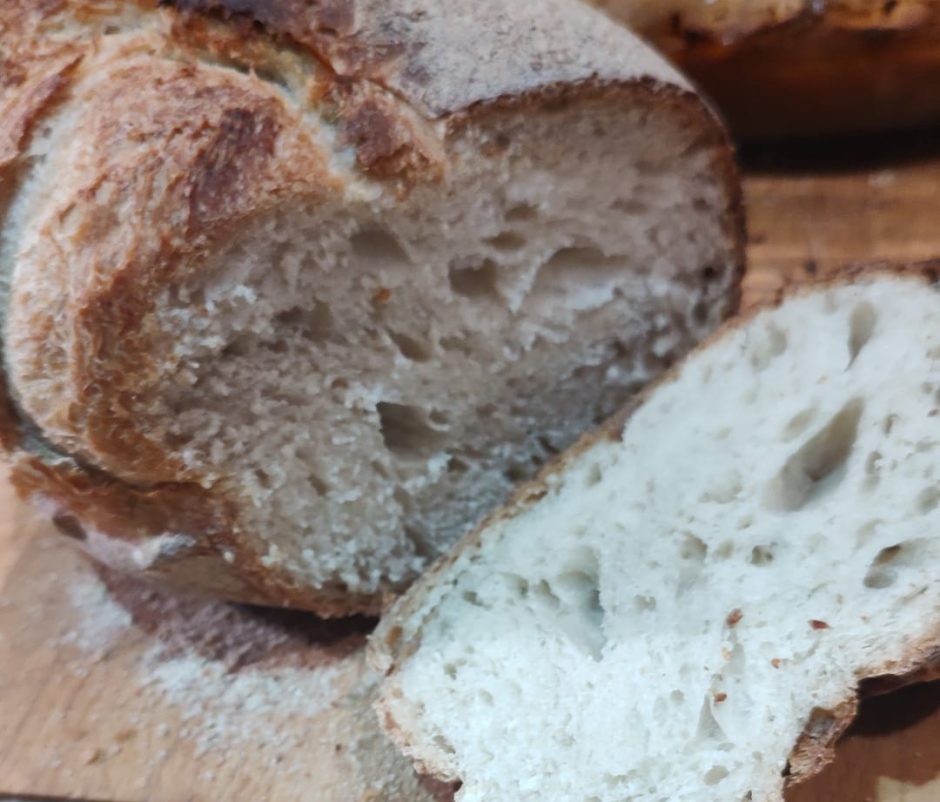“Just two ingredients… or “Just three ingredients” recipes seem to be very popular online culinary posts and vodcasts. These recipes are often accompanied by extra sides or enhancements that then add a handful more ingredients.
Fast flat breads are one such recipe. Fast unleavened flat breads. And when I say “fast,” they take 10-15 minutes and are relatively easy work. 35 minutes if you include a rest period. What is more, once cooled, they store in the freezer for up to three-four months and take just 8-10 minutes at room temperature to defrost, benefiting from a quick 20 second burst in the microwave, warming them up and returning them to their former glory. Making them a perfect batch cook solution.
There are two common recipes and two trains of thought
Greek yoghurt and self-raising flour vs Greek yoghurt and flour and baking powder. You pick. Basically, equal measures of Greek yoghurt and flour – or a little more yoghurt, and either self-raising, or a third ingredient, baking powder. We went with self-raising flour. Second time around, we tried strong bread flour and baking powder. Both worked well.
Fast and simple
Simply add equal parts Greek yoghurt and then the flour to a mixing bowl – then add baking powder. Gradually add in more flour until the dough starts to form into a ball. Work quickly though, otherwise the dough gets stickier, the longer it’s at room temperature. If you choose to rest the dough, rest it in the fridge.
Separate. Roll into balls. Flatten and pan fry gently in a little oil or throw them on the BBQ!
Fast tips for fast bread
Use olive oil to roll out the fast flat breads as excess flour builds up and is a nuisance when cooking in the pan. Best for dipping.
Roll thinly. Fast flat breads should puff up nicely. “Little clouds!” Olly calls them. Roll them super thin and you have more of a tortilla style wrap. Better for wrapping.
Don’t stress about “perfect.” Rustic is fine.
With sourdough starter
Now – you could always add your sourdough starter waste to the mix too… but your dough would need an hour and more to ferment, preferably doubling in size. Temperature and the quantity of starter the variables in play.
- 400 grams flour.
- 320 grams water, preferably at room temperature
- 80 grams active sourdough starter
- 8 grams salt




Pingback: Home-baked bread to home-school sourdough (part I) – Edventures
Pingback: Home-baked bread to home-school sourdough (part vii) – price check – Edventures
Pingback: Home-baked bread to home-school sourdough (part viii) – price check – Edventures
Pingback: Home-baked bread to home-school sourdough (part x) In search of ‘spring’ – Edventures